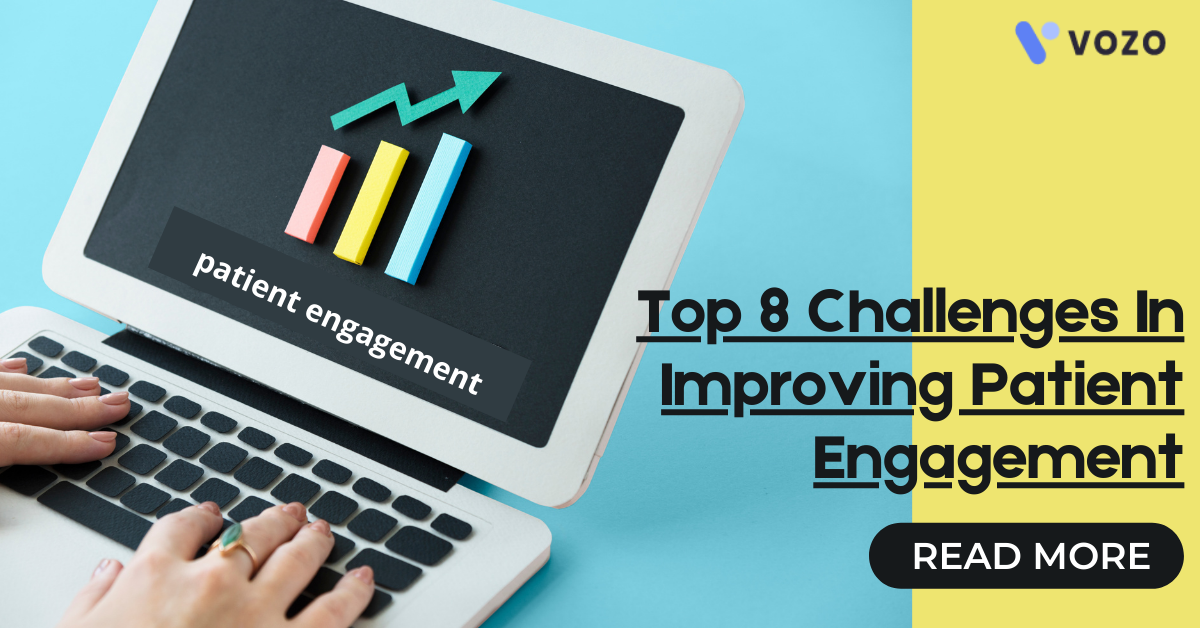Top 8 Challenges In Improving Patient Engagement
Today, patient engagement has become the most important key for a high-quality healthcare system. To achieve successful patient engagement at your healthcare practice, you need to take necessary actions towards shifting your healthcare model from fee-based to value-based care. In this article, we explained the challenges behind achieving patient engagement and the best strategies for improving it.
Patient Engagement: Challenges on the patient side
Effective healthcare requires clear communication and understanding between a patient and their care team. This empowers a patient to take responsibility for their wellbeing. Therefore, the patient must understand the medical information that is being provided to them. Some patients prefer a high-level overview of their diagnosis while others may request a much more detailed explanation of their diagnosis and treatment plan. In both instances, several factors should be kept top of mind when physicians interact with their patients.
Patient’s cultural background: They may not feel comfortable asking medical questions or advice.
Patient’s education level: A lower level of education may hinder patients from understanding medical information, processes, or treatment options.
Cost consideration: High medical costs may prevent patients from seeking appropriate treatment.
Patient’s motivation: Some patients may lack the motivation to take the necessary steps to improve their health.
Patient Engagement: Challenges on the physician side
Physicians face their own set of challenges in the processes of encouraging patient engagement.
Lack of modern technology: Patient engagement technology is a recent concept in healthcare. Many physicians have not yet invested in a technology that provides a way for patients to keep in constant communication with their care team. The Patient Engagement platform offered by Vozo effectively addresses this lack of communication between physicians and patients.
Lack of training: Without proper training of new online tools, physicians can begin to feel overwhelmed. Investing in training will enable practices to use the platforms to their full potential.
Lack of time: Physicians often lack sufficient time to allocate more than 10 or 15 minutes to each patient.
Lack of patient feedback: The most effective way to evaluate your organization’s patient engagement success is to ask your patients for their feedback. Physicians may feel they have provided appropriate medical education, while the patient is left feeling overwhelmed or unfit to take the first steps to involvement in their healthcare. Without asking your patients what they think, miscommunication may become commonplace.
RELATED: How To Boost Patient Engagement At Your Practice?
Strategies to Improve Patient Engagement
Maintain patient-provider relationships with frequent and clear communication. Encourage patients to be well informed and involved in improving and maintaining their health.
Expand patient engagement with access to user-friendly patient portals, where they can view their updated health information and submit questions to their physician.
Implement a shared decision-making process between patients and providers. This helps establish trust with your patients and makes them feel that their needs and preferences are understood.
RELATED: Importance Of Patient Engagement In The Era Of COVID-19
Utilize visual aids like diagrams and videos, that help clarify healthcare decisions to the patient. Provide patients and their family members with appropriate informational materials and literature about treatment options and outcomes, so they have a more clear understanding of the care they are receiving.
Provide patients with peer support when they are facing major health challenges, particularly when they are diagnosed with a life-altering illness.
Interactions between patients and providers across the continuum of care contribute to patient experience and influence a patient’s willingness and ability to engage with the healthcare system. Innovations in healthcare delivery and technology have allowed clinicians to enhance delivery and access to health services and information. However, the evolution to a more patient-centered system is not a simple task. Physicians will be expected to play a central role in assuring coordination of care across the continuum.
Vozo EHR is a complete suite of value-added services that help you to improve your patient’s health through care management, healthcare analytics and ultimately reducing the costs of care delivery.
Schedule a free demo with Vozo experts today to know more about improving your patient engagement.
About the author

With more than 4 years of experience in the dynamic healthcare technology landscape, Sid specializes in crafting compelling content on topics including EHR/EMR, patient portals, healthcare automation, remote patient monitoring, and health information exchange. His expertise lies in translating cutting-edge innovations and intricate topics into engaging narratives that resonate with diverse audiences.













